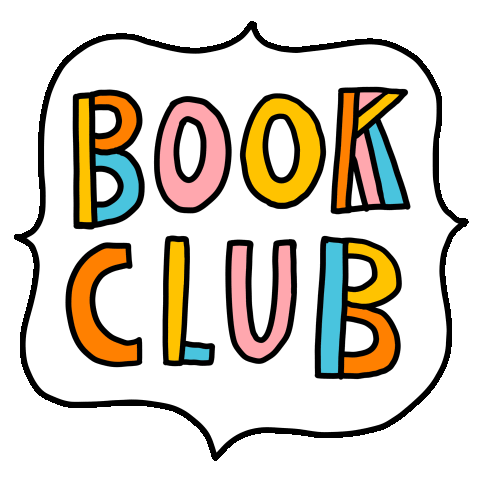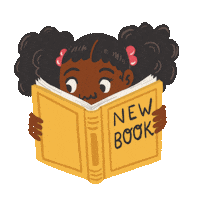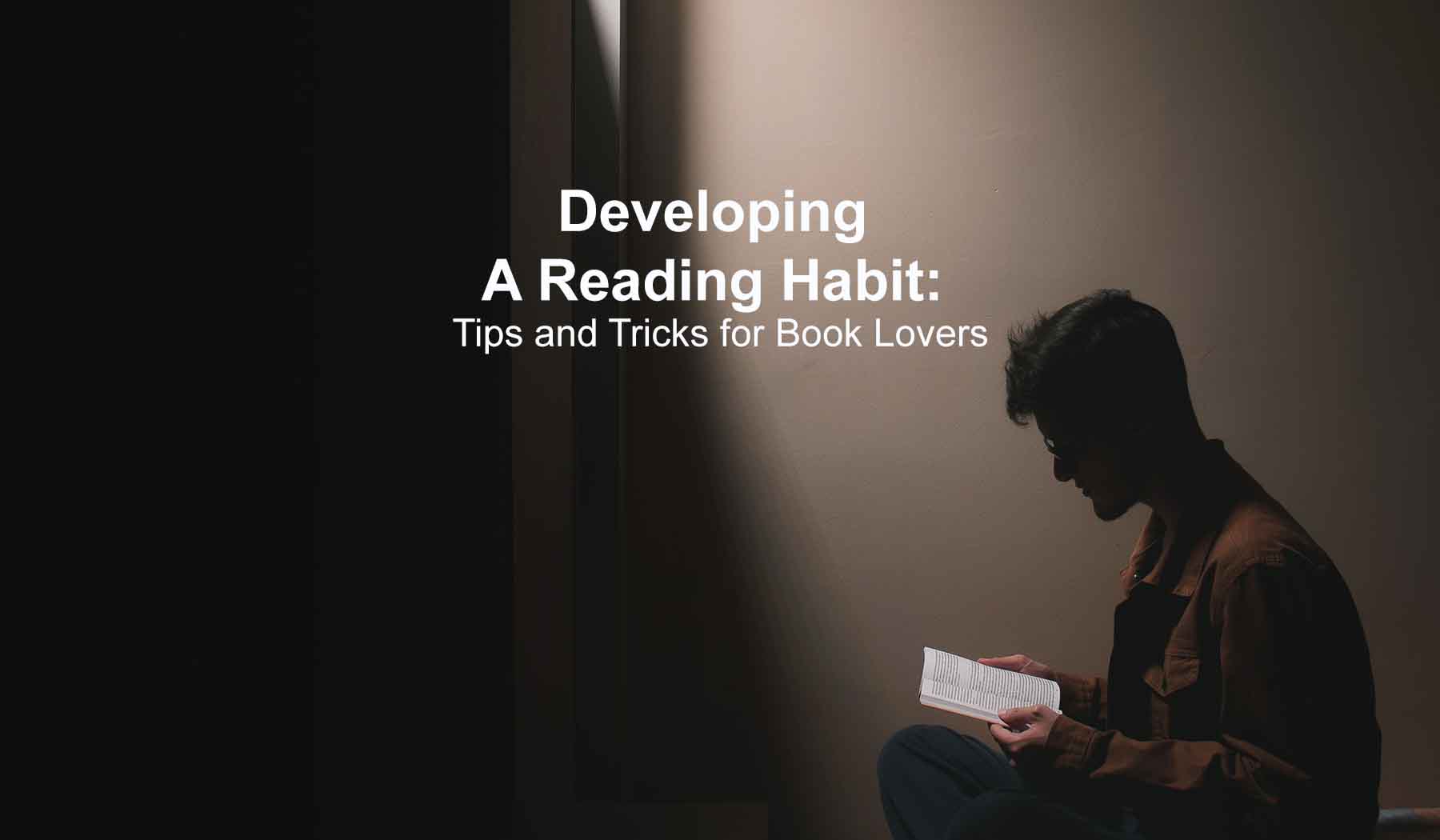Understanding the Importance of Reading
Reading is a crucial aspect of personal development, communication, and education.
Research has shown that reading fiction improves empathy and emotional intelligence.
Non-fiction books promote knowledge acquisition, which is vital for one’s career advancement.
The benefits of reading extend beyond merely knowing how to read; it influences thinking abilities, expands vocabulary, enhances critical thinking skills and increases creativity.
To further understand the significance of reading, it goes beyond just academic benefit but develops an individual’s personality and improves mental health.
There are different formats available for reading like paperbacks, hard covers or E-readers that provide diverse options.
It can be enriching in providing a doorway into foreign worlds not yet explored with new ideas which brings enlightenment.
Books play an essential role in fueling imagination while challenging an individual’s critical thinking abilities by posing philosophical questions without readily provided answers leading to development through personal knowledge acquisition.
In his memoir, ‘Swimming Lessons,’ Rohinton Mistry revealed his passion for books as a young boy living in India; he spent countless hours learning from their pages while sitting under the stairs during the Mumbai monsoons.
It’s through literary stories that we could find profound happiness both personally and professionally.
👉👉 Readers gonna read, haters gonna hate, but if you want to be a bookworm, you better start staying up late!

Tips for Starting and Maintaining a Reading Habit
To develop a reading habit with tips for becoming a bookworm, follow our solutions for starting and maintaining a reading habit.
Our sub-sections will touch on creating a reading list, carving out time for reading, reading in short and frequent sessions, avoiding distractions, and joining a reading group or book club.
Creating a Reading List
For a well-rounded reading experience, it is essential to curate a list of materials that suits one’s interests and goals.
Considerations such as genre, author, topic and relevance may help in preparing the ultimate compilation that caters to individual needs.
- Start by identifying your purpose or objective for creating the reading list.
- Gather recommendations from trusted sources such as book clubs, websites or colleagues.
- Diversify your selections by including diverse authors and genres to cater to multiple perspectives.
- Create a realistic timeline based on your availability and avoid overcommitment.
- Occasionally assess your progress and amend the list where necessary.
As you compile your reading list, consider including works that challenge your perspective or offer insights into unfamiliar territories. Let the selection be authentic to your unique style while keeping an open mind to expand on upcoming trends beyond expectations.
👉👉 A reader once stated she had never engaged with biographies until Mark Manson’s ‘Everything Is F*cked’ opened up her world.
Being adventurous in literature can lead to unexpected personal growth beyond comfort zones which may enhance the reading experience in unimaginable ways.
Time flies when you’re lost in a good book, but it also disappears quickly when you’re scrolling through social media.
Carving Out Time for Reading
Finding a Reading Schedule that Works for You
If reading is an essential part of your life, then it’s crucial to make time for it.
Establishing a regular reading routine is easier when you’re realistic about how much time you can commit daily.
Consider where in your schedule you have free time. Do you always take breaks at work?
Can you spare half an hour before or after dinner? Once found, stick to the routine to develop the habit.
Make Your Reading Space Comfortable
Your reading space should be comfy enough to enable concentration without distractions like pets or television sets.
Wherever it may be, if you enjoy being there, it should suffice. Some tools could help too; e-readers are useful on-the-go or in dimly-lit environments.

Track Your Progress
Tracking what and how much you read can help immensely with making reading habit-forming.
It’s here that we keep track of our progress and could also remind us of books that caught our interest but never returned to them.
👉👉 Ever heard of Abraham Lincoln’s reading habit?
He was an avid reader who taught himself law and became knowledgeable in various fields – becoming one of America’s greatest presidents!
A book a day keeps reality away, so read a few pages and keep sanity at bay.
Reading in Short, Frequent Sessions
By breaking down lengthy reading sessions into shorter and frequent ones, establishing a regular reading habit becomes less daunting.
Plan to read for a specific amount of time, or until you reach an allotted number of pages or chapters; it’s crucial to hold yourself accountable.
This habit aids in retaining more information and reduces the strain on vision that occurs during extended reading sessions.
Moreover, setting defined boundaries helps develop focus and encourages deep engagement with material.
Additionally, varying the material selection adds interest and novelty to the practice.
Approach your new habit as an investment in personal growth – a consistent 10-15 minutes daily can lead to substantial accomplishments over time.
Failing to establish this discipline can result in missed opportunities for learning, growth and pleasure derived from literature; always keep this in mind!
Distractions can wait, reading is a date with your imagination.
Avoiding Distractions
To maintain focus during reading, it is crucial to eliminate noise and disturbances around you.
Background noise such as TV, music, or even people talking can distract you from the text and break your concentration.
Additionally, put away your mobile phone and other gadgets that may have notifications popping up every few minutes.
These interruptions can steal time from your reading session, ultimately leaving you with an incomplete read.
To add further support for a more focused routine while reading, find a quiet place where you will not be interrupted frequently. A peaceful environment can help to improve your concentration span, allowing you to read for longer durations without feeling stressed or distracted.
👉👉 Pro Tip: If nothing helps eliminate distractions sufficiently, consider investing in some noise-canceling headphones or earplugs to block out external sounds and keep your mind calm while reading.
👉👉 Joining a book club is the ultimate reading hack – it’s like outsourcing your book recommendations to a group of strangers with good taste.

Joining a Reading Group or Book Club
Joining a Literary Community for Enhancing Your Reading Habit
Being a part of a literary community is an excellent way to develop and maintain a reading habit.
Here are six ways that joining a reading group or book club can boost your love for books:
- Meeting people with similar interests.
- Discovering new books and authors.
- Exposing yourself to diverse reading genres and styles.
- Motivating yourself to read regularly by setting deadlines and goals.
- Enhancing your analytical skills by discussing the books with the group.
- Crafting your social skills and confidence as you engage in conversations about the books you read.
An additional way that literary communities can improve your reading habits is through exposure to different perspectives, opinions, and backgrounds.
This exposure can broaden one’s understanding of the worldviews represented in literature.
👉👉 Did you know that Oprah Winfrey’s Book Club has been operating since 1996, highlighting numerous bestselling authors and helping readers discover new voices?
Becoming a bookworm is easy, just find a good book and cancel all your plans for the next week.
Strategies for Becoming a Bookworm
To become a bookworm, use strategies that work for you.
Dive into diverse genres, track your progress with daily reading goals, and take notes on important book details.
Develop critical reading skills to actively engage with the material.
Lastly, incorporate reading into your daily life through creative and feasible methods.
Reading a Variety of Genres
To enhance your reading experience, explore a range of literary genres.
This strategy allows you to expand your vocabulary and perspective while also sharpening critical thinking skills.
By seeking out different genres, including non-fiction, classic literature, and contemporary fiction, you engage with authors from diverse backgrounds and styles.
Familiarize yourself with titles in each genre, solicit recommendations from acquaintances or online sources, and be open-minded towards stories that challenge conventional views.
In addition to reading traditional books, consider other media formats such as audiobooks and e-books for added convenience.
Utilize online resources like Goodreads or BookBub to discover popular books across different genres and access book reviews from other readers.
By diversifying your reading choices and exploring unfamiliar territories in literature, you’ll find opportunities for personal growth that cater to your interests.
Become a well-rounded reader who stays curious and adaptable. Allow your literary repertoire to evolve regularly and experiment freely with new works.
As bookworms say: ‘the more you read, the more things you know; the more that you learn, the more places you’ll go‘.
Don’t miss out on the benefits of a varied bookshelf that offers intellectual stimulation and emotional depth. Start expanding your literary horizons today!
👉👉 Reading goals are like diets, you start with enthusiasm but end up binging on Netflix instead.
Setting Reading Goals
One way to enhance your reading habits is by establishing well-defined reading objectives. By doing so, you help yourself stay focused and motivated throughout the process. Consider setting SMART (Specific, Measurable, Achievable, Relevant, Time-bound) goals for reading genres or number of books to read per month as a starting point.
To effectively establish reading goals, start by identifying achievable targets for the year or quarter.
It’s equally essential to consider your current reading pace and schedule when planning.
Additionally, identifying areas in which you need improvement can help set targets that are both challenging and attainable.
Once you have established clear objectives, track your progress regularly.
Determine what portion of each day is conducive to achieving your goal and keep interruptions during that time at bay.
Maintaining accountability by tracking daily or weekly progress can motivate oneself to stay on course.
Finally, tune out distractions and immerse yourself in the book once the goal has been set.
Use this time to focus solely on yourself and relax with a good book.
By consistently working towards your objectives, you’ll find yourself becoming more successful in achieving them while developing a love for reading.
Highlighting and taking notes: Because nothing says ‘I take my reading seriously’ like rainbow-colored pages and illegible scribbles in the margins.

Highlighting and Taking Notes
By marking up and recording key information, you can better understand the material.
Highlight important passages and write brief summaries or questions in the margins to help with comprehension.
Utilize digital tools such as annotation software or create flashcards for quick reference.
Another effective method is to take notes while reading, summarizing concepts and jotting down new vocabulary.
This helps retain information and serves as a reference when reviewing the material later on.
Organize your notes by chapter or topic for easy navigation.
To optimize these strategies, consider reading actively by engaging with the text on different levels such as setting goals before reading or making predictions about what will happen next.
By involving yourself in this way, you learn more critically and may find it easier to enjoy the subject matter.
A friend of mine transformed her reading habits by using these methods religiously.
Through consistent highlighting, note-taking, and reflection on her readings, she went from an occasional reader to a voracious one, commenting that “it’s like learning a new language – suddenly everything connects.”
If you want to become a bookworm, you’ll need to develop critical reading skills – because just flipping through the pages won’t cut it.
Developing Critical Reading Skills
Reading Comprehension Techniques
Maximizing your reading comprehension is essential for developing critical thinking and analytical skills.
One approach that can help improve comprehension is to activate prior knowledge before diving into a text.
Doing so helps build connections between new information and existing knowledge, allowing for a more profound understanding of the material.
Additionally, breaking down complex texts into manageable pieces and taking breaks frees up your attention span and stimulates better cognitive processing.
Incorporating different reading strategies like active reading, deep reading, and analytical reading can enrich your experience while reading any type of literature.
Active reading involves annotating and highlighting important words or phrases to actively engage with the text, while deep reading emphasizes immersing oneself in the themes and context of the literature’s setting.
Lastly, analytical reading requires extensive evaluation to critically assess how an author conveys their message. By strategically utilizing these methods, individuals can become more sophisticated readers.
For centuries, voracious readers have used various techniques to improve their critical thinking abilities through novel consumption.
Reading novels provides an excellent opportunity to enhance communication skills while also expanding one’s worldview by exposing themselves to diverse perspectives.
Charles Darwin read 2-3 hours every day about different subjects ranging from geography to philosophy which helped him in his breakthrough discoveries on evolution theory.
👉👉 Reading in the bathroom is the ultimate multitasking, but be sure to bring a good book and not the shampoo bottle.

Incorporating Reading into Daily Life
Reading as a Daily Habit
Inculcating reading habits is beneficial and integral to one’s personal growth.
The benefits of reading books are vast, including expanding vocabulary and improving mental acuity.
To integrate reading seamlessly into daily life, make time for it by setting aside dedicated times to read every day. This habit helps reduce stress levels and promote greater relaxation.
Create Optimal Reading Conditions
Reading in tranquil settings like parks or libraries promotes higher focus and engagement levels than amidst chaos and distractions.
Noise-cancelling headphones or earplugs may help minimize distractions while reading at home or in the office.
As humans, we tend to be visual creatures; hence choosing a well-lit environment is essential when selecting an ideal location for your reading sessions.

Make Use of Audio Books
Audiobooks provide a perfect solution to those with busy schedules unable to commit sufficient time while still seeking the benefits of literature consumption.
Utilizing audiobooks can be as effective as physically holding a book as they encourage mental stimulation, allowing you to immerse yourself in the story.
👉👉 Pro Tip: Aim to read various genres of books from science fiction and romance novels to non-fiction biographies, poems, essays, and autobiographies.
It opens your mind to diverse perspectives and different writing styles you might not have come across before!










